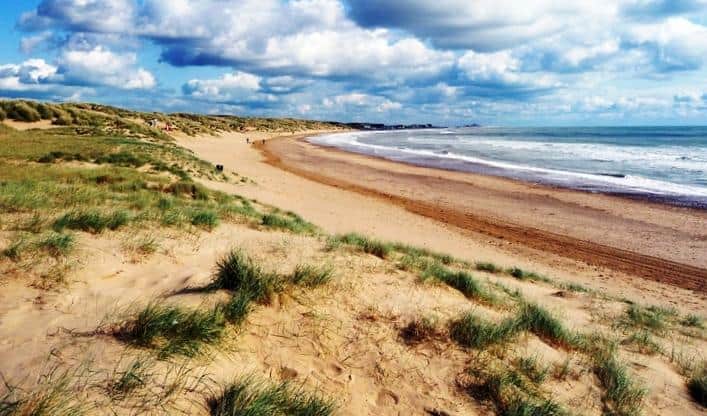
Living by the coast has its perks—fresh air, stunning views, and easy access to the beach. But if you’ve spent any time maintaining a coastal property, you know the ocean brings more than just beauty. Salt spray, humidity, sand, algae, and constant moisture can wear down buildings, patios, decks, and driveways fast. That’s why power washing is essential for coastal property care 💦🌊.
However, coastal environments come with their own set of cleaning challenges. Using the same techniques you’d apply inland can actually cause damage or accelerate wear. In this article, we’ll cover the best practices for power washing in salt-rich, humid, and sandy settings.
🌊 Why Coastal Properties Need Frequent Cleaning
The ocean environment introduces unique factors that accelerate grime and corrosion:
- Salt spray from the sea clings to surfaces, promoting rust and staining
- Moisture and humidity fuel mold, mildew, and algae growth
- Sand and debris grind against paint, finishes, and siding
- Bird droppings are more frequent near the water and corrosive
- UV exposure fades and weakens exterior coatings over time
Together, these conditions break down your home’s surfaces more quickly—especially decks, siding, roofs, and walkways.
🧼 What Should Be Power Washed Regularly?
Here’s a coastal property checklist for routine power washing:
| Surface | Frequency Recommendation |
|---|---|
| Vinyl or wood siding | Every 3–6 months |
| Driveways and walkways | Every 4–6 months |
| Decks and patios | Every 3–6 months (or seasonally) |
| Fences and railings | Twice per year |
| Windows and exterior glass | Every 3 months |
| Outdoor furniture and grills | Monthly to quarterly |
| Roof (with soft wash only) | Annually |
🌴 Tip: If your property is exposed directly to ocean winds, more frequent cleanings may be needed.
Browse Amazon Here For Top Rated Power Washers And Accessories
💡 What Makes Coastal Cleaning Different?
Power washing by the coast isn’t just about removing dirt—it’s about preventing corrosion and decay. Here’s how the coastal approach differs:
1. Focus on Salt Removal
Salt is the enemy of metal, wood, and even concrete. Your cleaning goal is not just appearance—it’s protection.
2. Use Rust-Safe and Non-Corrosive Products
Choose cleaners that are designed for marine or coastal use. Avoid bleach-heavy mixtures, which can corrode fasteners and fixtures.
3. Always Rinse After Washing
After applying cleaning agents or detergents, flush with plenty of clean water. This removes remaining salt and residue, especially in joints and crevices.
🛠️ Recommended Equipment and Settings
| Surface | Ideal PSI | Nozzle Tip | Notes |
|---|---|---|---|
| Siding (vinyl) | 1,500–2,000 | 25°–40° | Avoid aiming upward at seams |
| Decks (wood) | 1,200–1,500 | 40° | Keep wand 12–18″ from surface |
| Concrete patios | 2,500–3,000 | 15°–25° | Use degreaser for oil/salt mix |
| Roof shingles | Soft wash only | — | Use low pressure and detergent |
⚠️ Avoid high-pressure washing on aged or cracked siding and sealant.
🧴 Best Cleaners for Coastal Use
Opt for these types of cleaning agents:
- Oxygenated cleaners – gentle on surfaces, effective on algae
- Marine-safe degreasers – ideal for driveways and docks
- pH-neutral siding wash – won’t erode sealants
- Mildew removers – citrus or peroxide-based for siding and fencing
Avoid strong acids or undiluted bleach unless professionally applied.
Browse Amazon Here For Popular Power Washing Detergents
🌬️ Don’t Forget Wind Conditions
Coastal winds can carry spray a long way. To protect nearby plants, cars, or neighbors:
- Power wash on calm weather days
- Use plastic sheeting to protect glass and landscaping
- Keep sprayer angled downward to reduce misting
- Inform adjacent homeowners if overspray may affect their space
Also, avoid power washing during or just before rain—it can trap salt back onto surfaces.
🧽 Post-Wash Protection Tips
After power washing:
- Reapply sealant to decks, fences, or siding
- Consider UV-protective coating for furniture or finishes
- Lubricate metal hinges, latches, and locks with anti-corrosive sprays
- Use sacrificial coatings on windows (like Rain-X) to reduce buildup
- Install a hose bib filter if your water is also high in minerals
Maintenance is easier when you don’t let salt and grime settle in again.
👷 DIY or Hire a Pro?
While homeowners can handle most coastal power washing jobs, you may want to hire a professional if:
- You need to clean high-up areas or roofing
- The job requires soft washing systems
- You’re dealing with extensive rust or mold
- You’re in an HOA with appearance guidelines
Professionals often have equipment for hot water washing and water reclamation, which is crucial for eco-sensitive coastal zones 🌎.
✅ Final Thoughts: Clean Today, Protect Tomorrow
In a coastal environment, power washing is more than cosmetic—it’s a shield against salt, decay, and damage. By following coastal-specific best practices, you can keep your home, patio, and hardscapes clean and beautiful year-round 🏖️🧼.
Don’t wait until your siding starts flaking or your deck turns green. Stay on top of maintenance, and your coastal paradise will keep shining for years to come.
Browse Amazon Here For Top Rated Power Washers And Accessories



